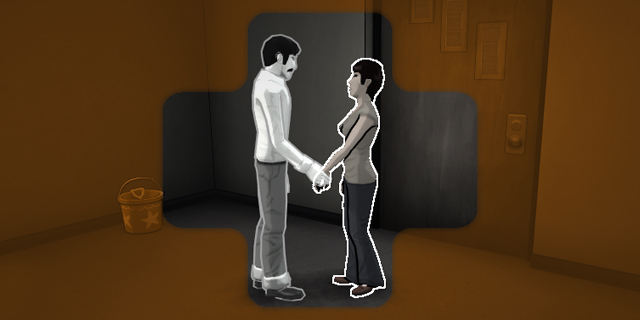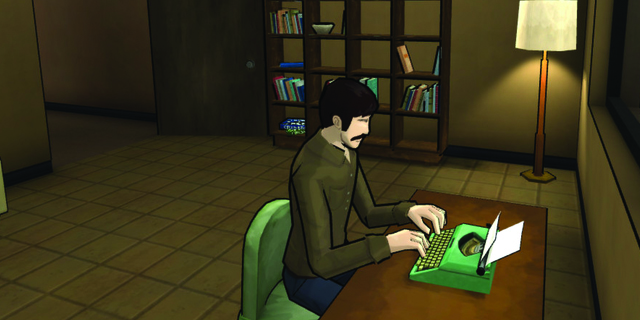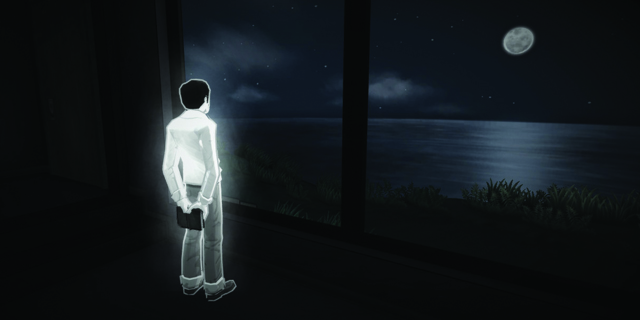
How often do you play games that are considered realistic? Does that word even apply to anything you regularly play, or is it something you merely see when people discuss games designed to capture one (or many) aspects of reality? I rarely see myself approaching games for any sort of realism, often leading to the suspension of disbelief. Sometimes it’s easy; after all, nobody plays Super Mario Bros. expecting anything even remotely resembling realism. Sometimes, however, stories being told in games resemble the reality which we inhabit, for better or worse.
The Novelist is one such game. It tells a simple story of a family staying in a summer home in an attempt to overcome individual issues and grow closer as a family. Oh yeah, there is one other thing: you don’t play as any of those family members. You play as a spirit inhabiting the home these folks are staying in, influencing their day-to-day decisions.
I approached The Novelist the same way I approached a game like Gone Home. It’s a first-person exploration game that confronts you with a realistic story with relatable characters and scenarios. Whether or not I could personally relate to the story is one thing, but Gone Home did a fantastic job of putting me in that situation and giving me the necessary context in order to successfully sympathize with the characters and their dilemmas. The Novelist attempts to do the same, but gives you an entirely different perspective on the situation. Depending on how you feel about the basic premise, it either works for you or it doesn’t.

Since you, as the player, are an outsider in the story and are influencing a group of people of which you have no prior knowledge, it’s understandable why the developer didn’t want to give you direct control over any particular character. Putting in the role as a spirit gives you a “real-world” explanation for your existence and just how you have the potential to influence this family. Otherwise, it would just be a story-driven version of The Sims, right? It requires a huge suspension of disbelief and potentially makes an otherwise-compelling narrative seem silly in comparison to something more grounded, like Gone Home.
Besides the spirit being an in-game representation of the player, some could argue its presence is merely to make The Novelist more of a game. When you begin playing, you can pick two difficulties, one of which makes the game essentially stealth-oriented. You can be “spotted” by the family and potentially ruin your opportunity to better understand their perspective regarding a specific situation. It presents an otherwise-basic game with more structure and challenge, and gives weight to the “making it more of a game” theory.
No matter how you view it, The Novelist is a weird game simply because of how it approaches player agency. Giving you control over a specter gives you more control over the situation, while still allowing you to witness their lives from a distance. You still make weighty choices that will impact their life choices and relationships, but you do so while knowing you are personally separate from that family. It’s a situation where the player’s role makes sense mechanically, but its narrative purpose depends entirely on the player’s willingness to suspend their disbelief. Is it out of place or does it serve a role in the grand scheme of the game’s story?

Thinking about this in terms of other games, I was hard-pressed to come up with specific examples. Sure, many games may have required me to suspend my disbelief in the context of that world and those characters, whether based on reality or fantasy, but not in this way. The Novelist is a unique example of a game that wants to have it both ways and, as a result, doesn’t always succeed yet is extremely fascinating as a result. It’s something that you will either gravitate towards, either out of desire or mere curiosity, or you’ll be unable to take seriously right from the start.
I would love to see other games take this approach to their story, whether they are telling something more grounded, like The Novelist, or more fantastic in setting and tone. It’s a new attempt at conveying a relatable, focused narrative and, even if the results are uneven, it’s undoubtedly a compelling way to handle it. If anything, it presented me with new questions on suspension of disbelief and just how far you can take an otherwise-simplistic familial story.



















